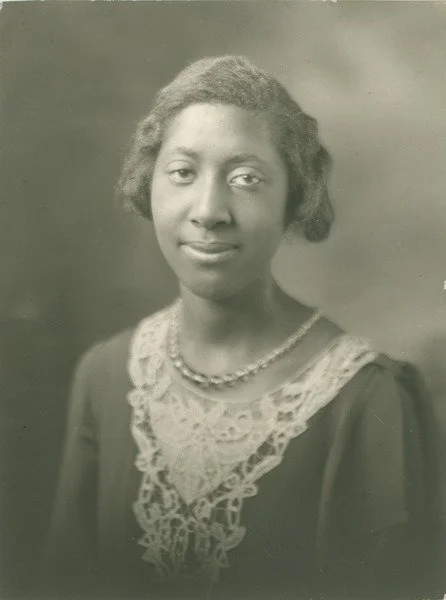In Celebration of Delia Silance
Delia Silance
In 2023, Purdue University churns out students with master’s degrees with the efficiency of Ford’s assembly line. Of course, it’s not easy. It requires dedication and many students endure hardships along the way. These items are not up for debate.But imagine being an African American woman at Purdue in 1932.
An African-American. Woman.
At the turn of the 20th century, systemic racism and discriminatory practices continued to be deeply embedded in Lafayette, causing a lack of economic opportunities for African American residents. Education beyond grade school was considered to provide no economic advantage and it wasn’t until Sterling R. McElwaine, Lincoln school’s new principal, arrived and restored confidence in the benefit of education for all.It is during this time that the four children of Emma and Louis Silance were growing up and under the guidance of their community-minded parents, attended Lincoln, Jefferson High School, and Purdue University. Indeed, all four children received college degrees; the two girls became educators and the two boys, pharmacists.
In 1923, a black student headed the honor roll at Jefferson High School, and that student was Delia Silance. Delia graduated Jefferson in 1925 with a $50 scholarship from the national Association of Colored Women’s Club, which she used to pursue studies at Purdue. At that time, racial segregation prohibited black students from living in Purdue housing, eating in the student dining facilities, and participating in extracurricular and recreational activities. Despite the restrictions placed on her, Delia graduated in 1932 and received the Dean Shoemaker Award for Academic Excellence. With encouragement from the Dean, Delia went on to receive a Master of Science degree in 1933. Delia parlayed her education into a successful teaching career that spanned many years and several states, but Delia returned to Lafayette in the 1950s where she worked at Purdue in the Division of Educational Reference. She retired from Purdue in 1970.
Delia was recognized as an active social and civic leader and an outspoken proponent of education for black youth. As a leading force in the Mary L. Club (an affiliate of the Indiana State Federation of the National Association of Colored Women’s Clubs), Delia was passionate about the club awarding scholarships to promising local black high school graduates, stating “We realize that what we give is of very little significance financially…but we hope that it will serve to be an incentive to the students to do their best in school and to do something worthwhile with their talents and their lives. Just knowing that someone notices and cares about their accomplishments and ambitions can be stimulating.”
Delia passed away in 1984 in Lafayette. As we move about our days, it is worthwhile to consider the foundations laid by those who came before us. Delia Silance is a testament to the power of education, the power of community involvement, the power of persistence. It’s important to recognize that opportunity and choice are not automatically granted to everyone and that for many people, circumstances are something that must be overcome and not something assumed to be a benefit. We thank you, Delia, for your commitment to education, for making a difference in your community, and for being On A Mission.
Reference: Darlene Clark Hine, When the Truth is Told: A History of Black Women’s Culture and Community in Indiana, 1875-1950, The National Council of Negro Women, 1981

